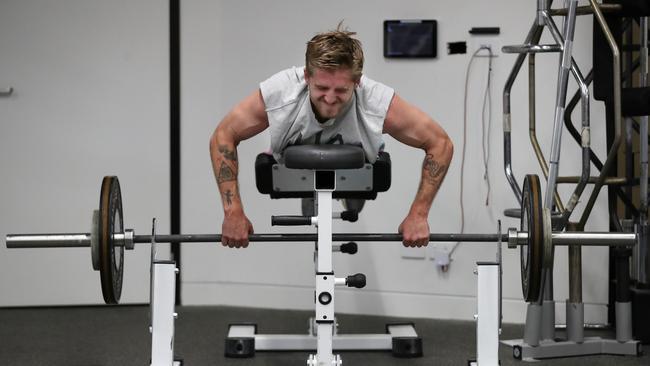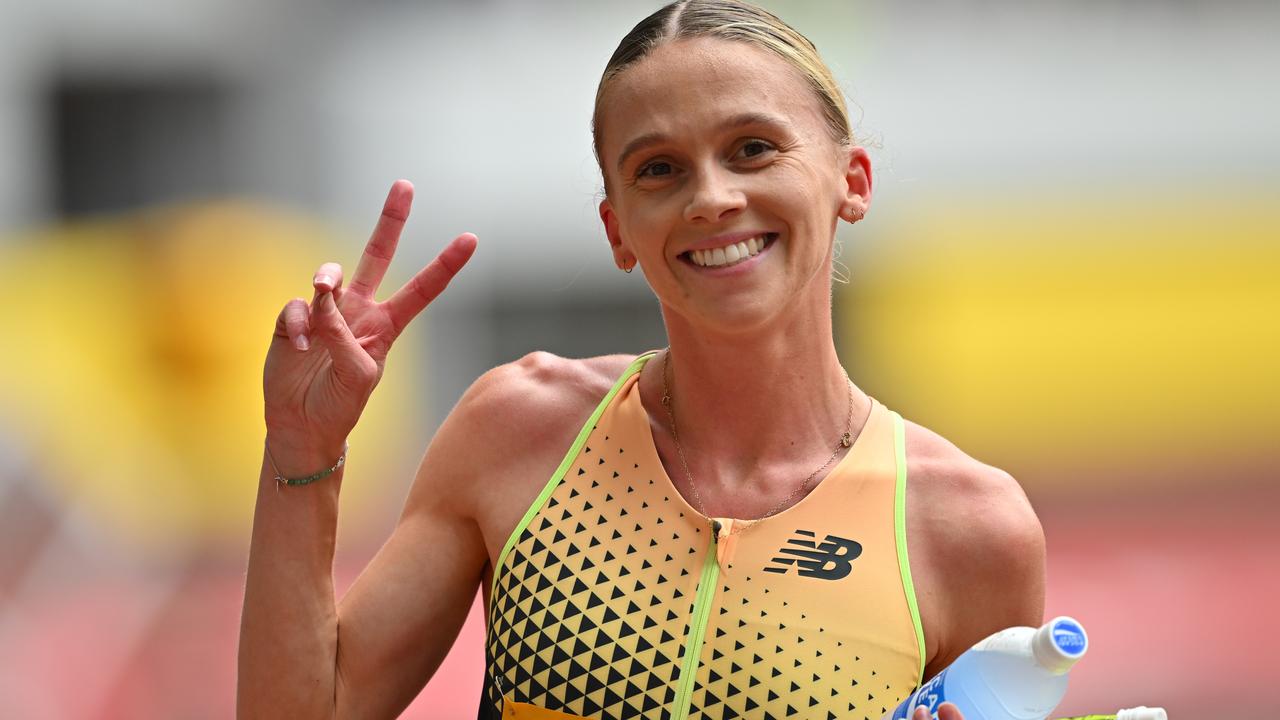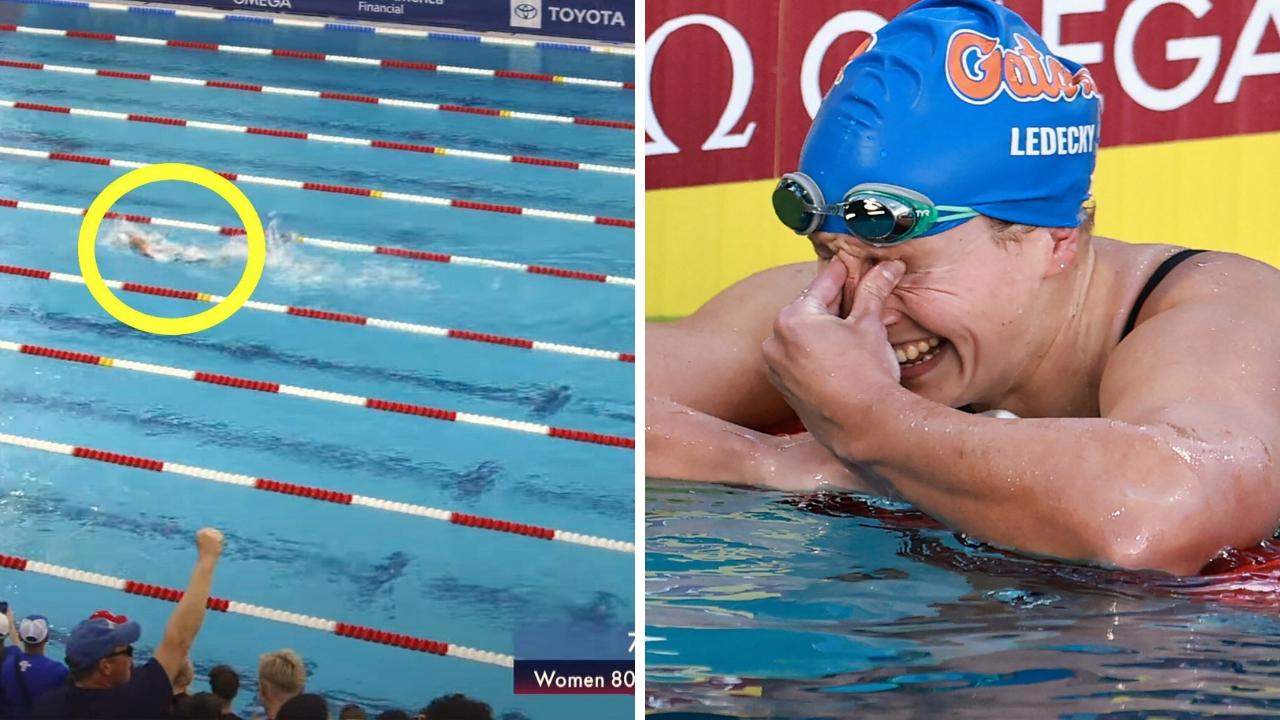WADA to vote on slashing recreational drug bans for athletes
WADA will vote on whether to slash recreational drug bans from four years to four weeks, meaning the biggest stars in the NRL and AFL could soon fall under the more flexible approach to positive tests.
Olympics
Don't miss out on the headlines from Olympics. Followed categories will be added to My News.
Doping bans for cocaine and marijuana use could be slashed from four years to as little as four weeks — if athletes can prove the illicit drugs weren’t used for performance-enhancing.
The proposal which would have both a significant global and local impact is part of what will shape a new World Anti-Doping Agency (WADA) code set for January 2021.
The code reform is being voted upon by leading international anti-doping agencies, including Australia’s ASADA, in Poland this week.
Almost every major sport in Australia, including all four major football codes, are bound by the WADA code.
It means that the biggest stars in the NRL and AFL could soon fall under the more flexible approach to positive tests from the use of so-called recreational drugs, such as cocaine or cannabis.
Stream over 50 sports Live & On-Demand with KAYO SPORTS on your TV, computer, mobile or tablet. Just $25/month, no lock-in contract. Get your 14-day free trial and start streaming instantly >

When it is shown that the substances were taken out of competition and without an attempt to boost sporting performance, the suspension will be just three months.
It has also been proposed that the ban could be reduced even further to one month, if the athlete agrees to undergo a rehabilitation and detox program.
Currently, the use of cocaine is treated with a two- to four-year suspension, like any other prohibited substance.
However, suspensions have varied in recent years both in the NRL and AFL — much to the condemnation of Test coach Mal Meninga, who has previously called for life bans for any rugby league player caught dabbling in illicit drugs.
Ben Barba was suspended for three months by the NRL and ultimately sacked by the Cronulla Sharks after testing positive to cocaine following the club's 2016 grand final victory.
Kiwi Test stars Kevin Proctor and Jesse Bromwich escaped ASADA suspension because they were caught on film consuming cocaine — not by a positive test.
The duo were axed from the New Zealand 2017 World Cup squad while Bromwich and Proctor were suspended for two and four matches respectively by their clubs, Melbourne and the Gold Coast.
In the AFL, Collingwood’s Sam Murray was banned for 18 months after testing positive to the presence of a banned substance. He is free to return to training after December 17.
ASADA CEO David Sharpe is in Poland and is supportive of the illicit drugs reform being proposed by WADA.
The code reform wouldn't stop the NRL and AFL from adopting their own levels of integrity and suspensions for illicit drug use.

But Sharpe is of the opinion that a greater focus on drug rehabilitation as opposed to anti-doping agency bans, which has the potential to leave athletes with a greater risk to mental health issues, is enough reason for change.
“Cocaine is being looked at (for code reform) in light of performance-enhancement,” Sharpe said. “Four years is the automatic for performance-enhancing.
“If it’s (cocaine) in your system, but wasn’t used in the 12-hours (prior to competing) for performance-enhancement, if that can be proven by the athlete, the penalty is certainly looking to be reduced, as part of the code reform. It’s part of the code review for 2021.
“I'm a strong believer that illicit drug-use is certainly something for the sports to manage within their own integrity frameworks.

“When it's used in a social context, you’ve got the welfare and rehabilitation aspect as a priority verses the ‘throw them out of sport take them away, which provides them with the support network’.
“This is about a consideration for the type of use, for when it was used, the welfare aspect being a priority verses the removal completely from sport.
“No one knows wants any athlete out of sport for making a mistake.'”
The WADA conference in Poland is also where world anti-doping leaders will discuss the outcome of Russia and their eligibility for the 2020 Tokyo Olympics, after being embroiled in another doping scandal.
Originally published as WADA to vote on slashing recreational drug bans for athletes



